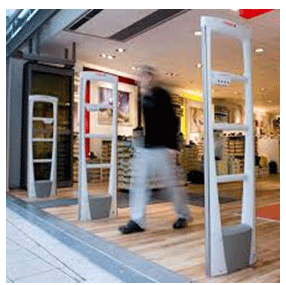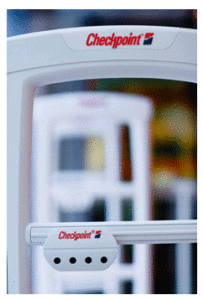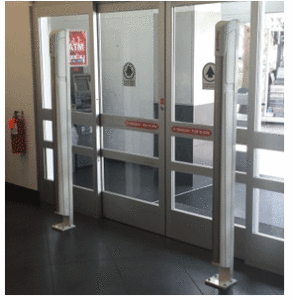How was 2016 for you? Was it a winning year or one full of loses? Were the personnel helping you during the holidays everything you expected? Many businesses forgo the employee screening process due to the cost associated with it, not knowing the cost is only a fraction of what a bad employee would cost them in a very short period of time. Read more by following the links below.
Changes in Shoplifting Penalties Make It Tougher for Retailers
Retail shoplifting penalties are undergoing changes. They aren’t all good.
Most readers of the LPM Insider are probably pretty familiar with shoplifting, its definition, its negative impact on retail operations and profitability and the shoplifting penalties for their state. It would be a lengthy process to learn the laws of every state and their shoplifting penalties because of the vast differences and constant change. Shoplifting laws have changed significantly in recent years—but rarely to the benefit of the retail industry.
Shoplifting and petty theft are criminal offenses that are frequently thought of as interchangeable, as they share common elements. Each crime requires the perpetrator to take something valued at or below a certain dollar amount, with the intent to permanently keep it, usually constituting a misdemeanor crime. The taking of something valued over that predetermined amount (as described by law) constitutes grand theft, which is a felony. State laws vary on the cutoff between petty theft and grand theft, and the shoplifting penalties assigned to those crimes vary by the amount stolen and by state. But, in general, to qualify for petty or grand theft, certain criteria must apply:
- The victim of the crime had a “possessory interest” in the stolen item
- The property was “taken away”
- The victim did not agree to the taking
The defendant intended to permanently deprive the victim of their interest in the property.
Businesses rally to prevent shoplifting
Tucson, AZ — Serial shoplifters cost business owners in Pima County $5.91 million a year. On Wednesday, the Pima County Attorney, law enforcement, and local retailers partnered together for the new “We Watch, We Prosecute” campaign to stop thieves.
2016 was the first year ever that 100% of retailers say they were victims of organized retail theft, according to a study by the National Retail Federation.
Police say 80% of organized shoplifters steal because of drug addiction.
The Tucson Metro Chamber brought together retailers, law enforcement and prosecutors to form the Coalition Against Retail Theft (CART).
CART’s “We Watch, We Prosecute” campaign will:
Educate retailers and consumers on protecting themselves from organized theft through workshops.
Increase tools for retailers to identify and help prosecute organized retail thieves by working more with law enforcement.
Resources like signs warning thieves of surveillance cameras to deter theft.
Background Screening As a Commitment to Public Safety
BUSINESS SOLUTIONS The need to hire the most qualified candidate has never been greater. Companies that utilize background screens demonstrate their commitment to ensuring safety.
The need to hire the most qualified candidate, and the inherent risk in hiring the wrong candidate, has never been greater.
What’s at stake
Workplace violence, unethical business practices and misleading résumés are on the rise. The costs of fraud, embezzlement, theft and violence are a multibillion-dollar drain on our economy, bleeding organizations both large and small.
Furthermore, negative publicity associated with negligent hiring — especially as the result of a less than thorough background check, or worse, no background check — can devastate the very foundation of a trusted organization. Now more than ever, companies should be using regulated, professional background screeners.
Less expensive than you think
The most common reason among employers for not conducting background screens is cost. That background screen cost, however, represents a fraction of the cost involved in turnover, termination, re-recruiting, re-hiring and re-training. And that’s best-case scenario for a bad hire.

 The busiest shopping season of the year is almost done.
The busiest shopping season of the year is almost done. Light-When someone is looking to do no good to your property, they feel more secure if it looks like no one is home. The key is to confuse them and make them feel unsure. Remember, most burglars are lazy. If they are not sure about your house, they will move on. So you should have at least two light timers (three is better) set up and running seven days a week. These should be in different areas of the home and should come on and off at different times. Use the random or security feature found on most timers. This will vary the on/off time every day just a little in case someone is watching the house for a pattern.
Light-When someone is looking to do no good to your property, they feel more secure if it looks like no one is home. The key is to confuse them and make them feel unsure. Remember, most burglars are lazy. If they are not sure about your house, they will move on. So you should have at least two light timers (three is better) set up and running seven days a week. These should be in different areas of the home and should come on and off at different times. Use the random or security feature found on most timers. This will vary the on/off time every day just a little in case someone is watching the house for a pattern.  e cost. Shop around for quality units. A few things to consider when purchasing:
e cost. Shop around for quality units. A few things to consider when purchasing: Each year retailers take inventory of their merchandise, counting what they have in the store, reconciling that information against sales receipts, vendor credits and receipts and markdowns. Usually the result is some amount of shortage or merchandise shrink due to merchandise that cannot be accounted for and losses due to certain markdowns and damaged products. I have in rare instances seen overages, but those are usually the result of offsets from prior year shortages often attributed to paperwork errors. The store objective each year should be to improve upon the prior year inventory result. Certainly the best case would be to have zero dollar shortages every year, but that is not a realistic expectation. I try to explain to employees that if one package of gum were to be stolen during the year, you have incurred shortage. There are steps a store owner or manager can take to work towards that yearly improvement and shoot for a zero dollar shrinkage year.
Each year retailers take inventory of their merchandise, counting what they have in the store, reconciling that information against sales receipts, vendor credits and receipts and markdowns. Usually the result is some amount of shortage or merchandise shrink due to merchandise that cannot be accounted for and losses due to certain markdowns and damaged products. I have in rare instances seen overages, but those are usually the result of offsets from prior year shortages often attributed to paperwork errors. The store objective each year should be to improve upon the prior year inventory result. Certainly the best case would be to have zero dollar shortages every year, but that is not a realistic expectation. I try to explain to employees that if one package of gum were to be stolen during the year, you have incurred shortage. There are steps a store owner or manager can take to work towards that yearly improvement and shoot for a zero dollar shrinkage year. After a long and contested election cycle, a new president will be inaugurated and with this result, some experts are predicting the economy will begin to improve significantly.
After a long and contested election cycle, a new president will be inaugurated and with this result, some experts are predicting the economy will begin to improve significantly. customer transaction.
customer transaction. Have you been keeping up with the news? It appears the stock market is on the verge of breaking new records. People are gaining confidence now that some economists are expressing optimism that we are about to see a jump start in economic growth. Does that mean EVERYONE is going to benefit? Unfortunately, the answer is no. There are many people who will continue to work in their current jobs and experience little personal benefit in their own eyes. What do I mean, “In their own eyes?” Just this, there are some people who are not satisfied with their job, or financial situation, or any number of things in their life and do little or nothing to try to change that. What they WILL do is get jealous when they see others who do well. It may be a co-worker who gets a promotion, a friend who has received a pay raise, a relative who has purchased a new car, there are lots of things that people can get jealous over. Sometimes this jealousy turns into an attitude of “Keeping up with the Jones’s” and can result in someone engaging in dishonest activity so they can have new things too. Frequently those who steal because they haven’t gotten that raise or promotion will try to justify their actions by rationalizing that they deserve it and aren’t being recognized for their contributions.
Have you been keeping up with the news? It appears the stock market is on the verge of breaking new records. People are gaining confidence now that some economists are expressing optimism that we are about to see a jump start in economic growth. Does that mean EVERYONE is going to benefit? Unfortunately, the answer is no. There are many people who will continue to work in their current jobs and experience little personal benefit in their own eyes. What do I mean, “In their own eyes?” Just this, there are some people who are not satisfied with their job, or financial situation, or any number of things in their life and do little or nothing to try to change that. What they WILL do is get jealous when they see others who do well. It may be a co-worker who gets a promotion, a friend who has received a pay raise, a relative who has purchased a new car, there are lots of things that people can get jealous over. Sometimes this jealousy turns into an attitude of “Keeping up with the Jones’s” and can result in someone engaging in dishonest activity so they can have new things too. Frequently those who steal because they haven’t gotten that raise or promotion will try to justify their actions by rationalizing that they deserve it and aren’t being recognized for their contributions. Many stores, public places, and government
Many stores, public places, and government Police Departments across the nation are busy this holiday season launching operations aiming at catching shoplifters.
Police Departments across the nation are busy this holiday season launching operations aiming at catching shoplifters.
 s level, but your bottom dollar. When people have a problem, they research a solution. One way to prevent shoplifting is having an electronic article surveillance system installed by a reputable company. Searching for such a company can be daunting. Shoplifting is an issue that needs to be addressed and resolved quickly. Why would you choose Checkpoint equipment from Loss Prevention Systems Inc. (LPSI?)
s level, but your bottom dollar. When people have a problem, they research a solution. One way to prevent shoplifting is having an electronic article surveillance system installed by a reputable company. Searching for such a company can be daunting. Shoplifting is an issue that needs to be addressed and resolved quickly. Why would you choose Checkpoint equipment from Loss Prevention Systems Inc. (LPSI?) nce and typically resolve potential issues. With its strong frame and Evolve capabilities, it will last a long time and is “future proof”.
nce and typically resolve potential issues. With its strong frame and Evolve capabilities, it will last a long time and is “future proof”. 